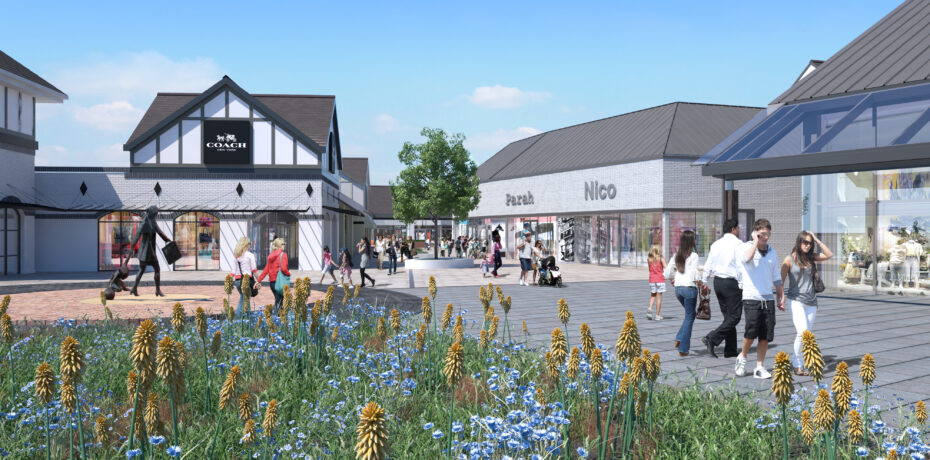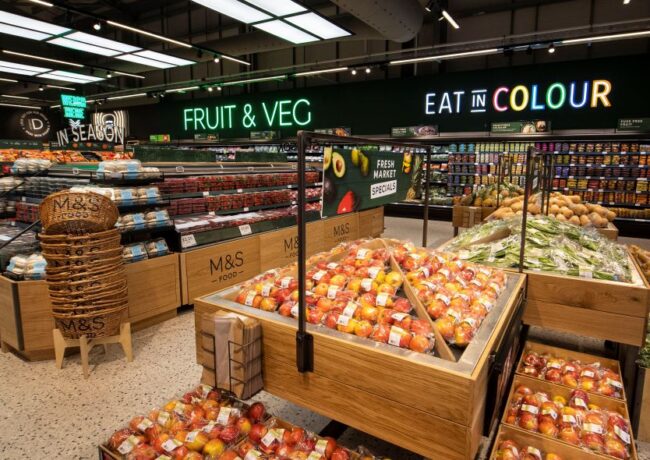The Subplot
The Subplot | Property’s post-holiday depression, pre-Christmas sales
Welcome to The Subplot, your regular slice of commentary on the North West business and property market from Place North West.
THIS WEEK
- The holiday is over: the North West visitor economy faces a rocky road ahead, developers and investors beware
- Shopping for bargains: investors mull the Cheshire Oaks opportunity

END OF THE HOLIDAY
 The visitor economy lands with a bump
The visitor economy lands with a bump
The North West visitor economy had a scorching summer. But a moneyspinning high season disguises real problems. Plus, there’s a gaping hole in strategy. Leisure, hotel and retail landlords beware.
The staycation summer was a bonanza for the local tourism sector. Hotel room bookings in Liverpool approached 2019 levels, with daily room rates and yields higher than pre-pandemic levels. And it wasn’t just a weekend market: occupancy mid-week was 80%, says Marketing Liverpool. Data from Barclays Corporate Banking pointed the same way: regional tourist GVA was up £450m compared to 2019, on the back of avid staycationers and rising prices.
Is anybody listening?
But one good summer is not the solution to a visitor economy knocked sideways by Covid-19, one with literally thousands of new hotel rooms to fill, and where economic strategy sometimes neglects, or misunderstands, or simply takes for granted a visitor economy (worth £12bn in net GVA to the North’s economy, according to Transport for the North analysis published over the summer).
Don’t be fooled
The fear is that politicians – local and national – will look at this summer’s record takings and think everything is sorted. It certainly isn’t. “The headline ministers see is that it was a good summer, and they think ‘big tick, the job’s done’. There’s a real concern because while we’ve seen real improvement, and rural and coastal areas had a good summer, the cities fared less well, and until the international tourism, business visits and convention market return, there will be a long tail of recovery,” says Nick Brooks-Sykes, director of tourism at Marketing Manchester.
Headwinds
“It would be wrong to conclude that everything is rosy,” says Chris Brown, director at Marketing Liverpool. “Many businesses are struggling to attract enough staff to meet demand – some of this is from people leaving the sector over the last 18 months, while there has also been a huge impact from Brexit on EU nationals, who play a crucial role in the city’s visitor economy. As such, many hotels, restaurants and attractions simply can’t operate at 100% capacity. We also have the end of furlough and no clarity around VAT once the 5% finishes, which together with spiralling costs all create uncertainty for businesses.”
Tax hike
That VAT rise could be a killer. Rates sunk to just 5% in July 2020 as the government tried to revive the restaurant, holiday and pub sector. It will leap back to 20% in April 2022. This will come on top of labour shortages that are pushing up wages. The North West’s 19,000 accommodation businesses will either pass these costs on to customers, or absorb the costs themselves, and either way, it could derail their already unsteady recovery. Restaurants and bars face the same danger.
Remember these numbers
Why? According to the latest NatWest North of England Tourism Business Barometer, as August ended just 38% of North West visitor economy businesses saw their revenue higher, or the same, as 2019. For everyone else, it was a fall, and for 39% it meant revenue cut by at least a third. Forward bookings for the rest of the year are also sharply down – only 33% of businesses expect to match or exceed 2019 levels.
Hotel apocalypse
For the hotel sector, this is far from theoretical. North West hotel closures have not yet peaked according to analysts, while a recent forecast from PwC predicted that UK hotel occupancy rates could take until 2023 to return to pre-pandemic levels. Greater Manchester has had fun digesting 4,500 new rooms in the last five years. It faces 8,000 more in the next five years, but this time without massive growth in airport numbers to keep things afloat. This poses a tremendous challenge to operators, landlords and policy-makers. “I’d like landlords, developers, investors to come and have a conversation with us, because 8,000 new hotel bedrooms aren’t going to fill themselves,” warns Brooks-Sykes.
Talk to me
This is where it gets complicated, because policymaking on the visitor economy has been ramshackle at best. An ever-revolving carousel of tourism ministers, responsibilities split so tourism doesn’t link to communities, a patchwork of promotional bodies, and no regular seat at the economic policy (or planning) table make for a sorry mess. To their credit, the government has recognised this and has a plan. The title – the Du Bois review of destination management organisations – may not get hearts racing, but it is serious stuff.
You spin me right round
“At the national level we’ve had three tourism ministers in quick succession, and we need more focus, more input from the Treasury, and these problems of leadership are often replicated locally,” says Rachel McQueen, chief executive of Marketing Lancashire. “You need to be lucky, or in a very forward-thinking area, to find a local authority that really takes the visitor economy seriously.” The complaint from just about everyone is that few people in government (local or national) understand that just saying “it’s lovely here, come and visit” will not magically generate £12bn of net additional GVA. Dots must be joined up. And they often aren’t.
Getting better
The Du Bois Review suggested the visitor economy needed a place at the policy table. Manchester’s Nick Brooks-Sykes says: “Policymakers thought of the visitor economy as low skilled, low pay, and got very impressed by tech and financial services and life sciences instead. But the foundational economy deserves to be taken seriously too, and it certainly shouldn’t be taken for granted.” Lancashire’s Rachel McQueen adds: “Too often visitor needs are last.” If the Du Bois reforms lead to action then policymaking will become more coherent. Fingers are crossed.
Hybrid leases
In the private sector other, quicker solutions must be found. One is to re-think the operational agreements that yoke hoteliers to landlords. Hybrid leases are one answer. AGO Hotels operates one North West hotel (the Ibis Budget at Lancaster) and hopes to make a bigger splash in the region. It launched in the difficult days of June 2020 to provide hotel asset owners with a hybrid lease structure, offering a combination of institutional lease terms on a guaranteed base rent along with a top-up profit rent. “Our North West hotel is our top performer so we are actively looking for new additions to the portfolio in this region,” says co-founder Viv Watts.
Hybrid hotels
Not just hybrid leases, but hybrid hotels says Chris Long, director of architect KKA, designer of the new Hampton by Hilton in Rochdale. Public sector funding might be necessary, and hotels have to get used to being workplaces as well as leisure spaces. “Hotels will need to offer both the digital infrastructure to enable remote working and accommodation that adapts to deliver a variety of functions. Rooms and communal spaces can no longer be solely designed for one purpose. They have to be multi-functional,” says Long, who predicts ‘work-cations’ will be the next big thing. For the sake of the English language, let’s hope he’s wrong.
Conclusion: Don’t be fooled, North West tourism has a long recovery ahead. The numbers could be worse, but even so, a major clearout is coming
IN CASE YOU MISSED IT…
Which trend-lines are you reading?
Nuveen has invited bids for the Cheshire Oaks outlet village. Outlet malls are one of the few retail assets still performing well. So why sell?
Nuveen has asked Morgan Williams, the specialist London retail investment boutique, to seek bids for the 349,000 sq ft Cheshire Oaks outlet village, and a similar asset in Swindon. The combined price tag is said to be £600m. Nuveen acquired Cheshire Oaks in 2008, paying £365m as part of a three-centre deal including Swindon and Bridgend. Neither Nuveen nor Morgan Williams wanted to talk to Subplot about the sale.
No, you have it
The context here is that a few days ago Nuveen (and partners) succeeded – at long last – in off-loading Birmingham’s 332,000 sq ft Fort Shopping Park to Invesco, which is reported to have paid £84m. By no means chicken feed, but a lot less than the original asking price of £130m, or the reality-strikes revised asking price of £90m. It is so far below the 2006 sale price of £250m that it’s basically rude to mention it.
Your risk is my opportunity
The scream-if-you-want-to-go-faster pricing roller coaster isn’t a problem for medium-risk-friendly buyers, who think things are swinging up. Investors with a weighting to out-of-town retail have done well, Savills calculated earlier this year, adding that there were “significant investment opportunities”. Meanwhile, McArthurGlen, the operational name behind Cheshire Oaks, has opened its first new outlet mall for 20 years and plans more. If you’ve pinned your hopes on this trend line, then phone Morgan Williams immediately ahead of a Christmas sale.
Or maybe don’t
The fact is that Nuveen reckons now is a golden hour to unload assets that, while currently popular, have a troubled past and an uncertain future. The trends that sent out-of-town retail into freefall have not gone away, and in any case, Nuveen has its eye on other trend lines. It would rather invest in life science, senior housing and medical offices, all of which look attractive as the global population ages and more medical activity shifts from hospitals to cost-efficient medical offices. And, like absolutely everyone else, Nuveen also fancies build-to-rent housing and warehouses.
Out-of-town retail had a good pandemic. But it remains a bet some investors will not want to take.
The Subplot is brought to you in association with Cratus and Oppidan Life.





